Renewing US Visa: Guide To A Smooth Process
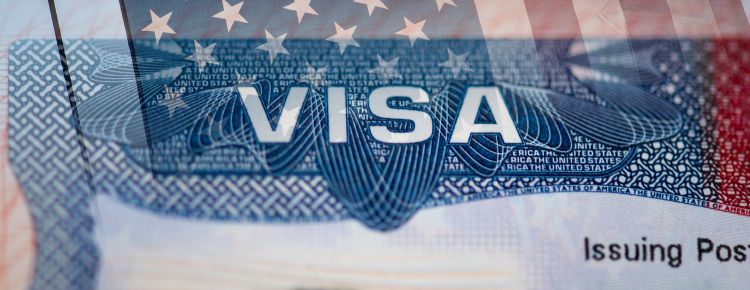
The desire to extend your stay in the United States, whether it’s for work, study, or leisure, often necessitates renewing your US visa. While the thought of going through this process might initially seem overwhelming, understanding the ins and outs of renewing US visa can help you navigate it with ease. This comprehensive guide will cover everything you need to know about renewing US visa, from eligibility criteria to the interview waiver program.
By following the step-by-step instructions provided in this guide, you’ll gain a clear understanding of the renewing US visa process along with valuable insights on how to overcome potential setbacks. Let’s begin this journey towards a seamless visa renewal experience.
Key Takeaways
- Understand US visa renewal eligibility criteria and types of visas eligible for renewal.
- Complete Form DS-160, gather necessary documents and potentially arrange an interview. Check Visa Interview Waiver Program to see if it applies.
- Pay applicable fees, check application status regularly & understand what to expect after approval or denial of a US visa renewal.
Understanding US Visa Renewal Eligibility
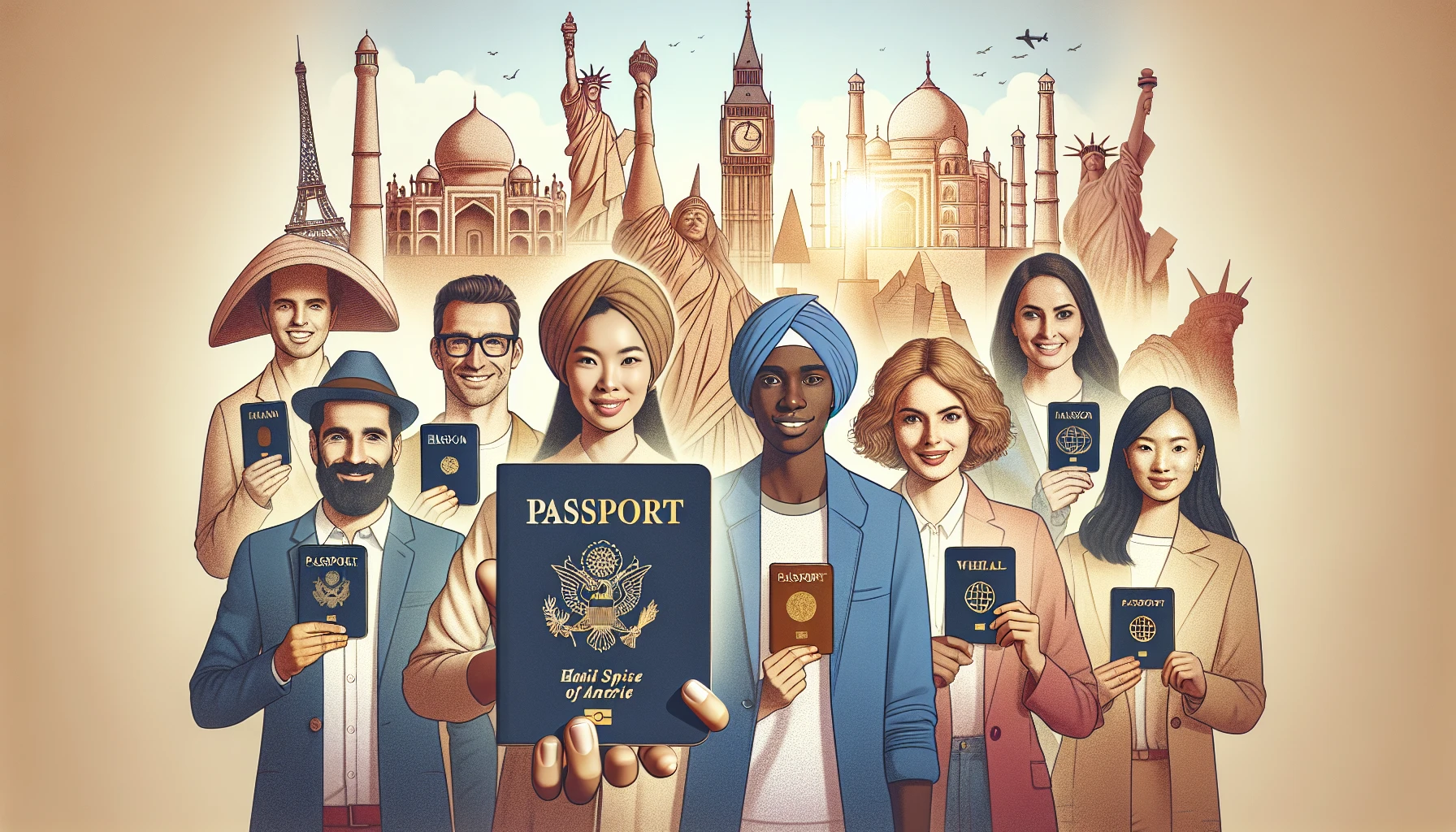
In the context of US visa renewal, the initial step is to ascertain your eligibility. The eligibility criteria vary depending on the type of visa you hold and its expiration date. Knowing these factors will ensure that you’re well-prepared for the renewal process, minimizing any disruptions to your plans.
To gain a better understanding of eligibility, we will examine the various types of visas that qualify for renewal, their specific requirements, and the significance of expiration dates and visa validity.
Types Of Visas Eligible For Renewal
Since not all visas qualify for renewal, identifying those that can be extended is imperative. Among the various visa types that can be renewed are visitor visas (B1/B2) and diplomatic visas. The renewal process for a visitor visa typically involves completing the online nonimmigrant visa application form, submitting the required fee, and scheduling an appointment for those with a valid visa.
Various visas carry unique renewal requirements. For instance, renewing a US tourist visa necessitates visiting a US embassy or consulate abroad, arranging an interview with a visa official, and submitting the required paperwork. Be sure to familiarize yourself with the precise renewal requirements for your particular visa type to ensure a smooth experience.
Expiration Date And Validity
Prior to seeking visa renewal, checking the expiration date and validity of your visa is a requisite step. The expiration date refers to the last day you can use your visa to enter the United States, while validity pertains to the duration of time you’re authorized to remain in the country, starting from the date of visa issuance. A US visa can be renewed after it has expired, provided that it remains valid or has expired within the past 48 months.
To ensure a successful renewal process, it’s advisable to initiate the procedure no later than six months before your visa’s expiration date. By verifying your visa’s expiration date and validity, you’ll be well-prepared for a seamless renewal experience.
The US Visa Renewal Process
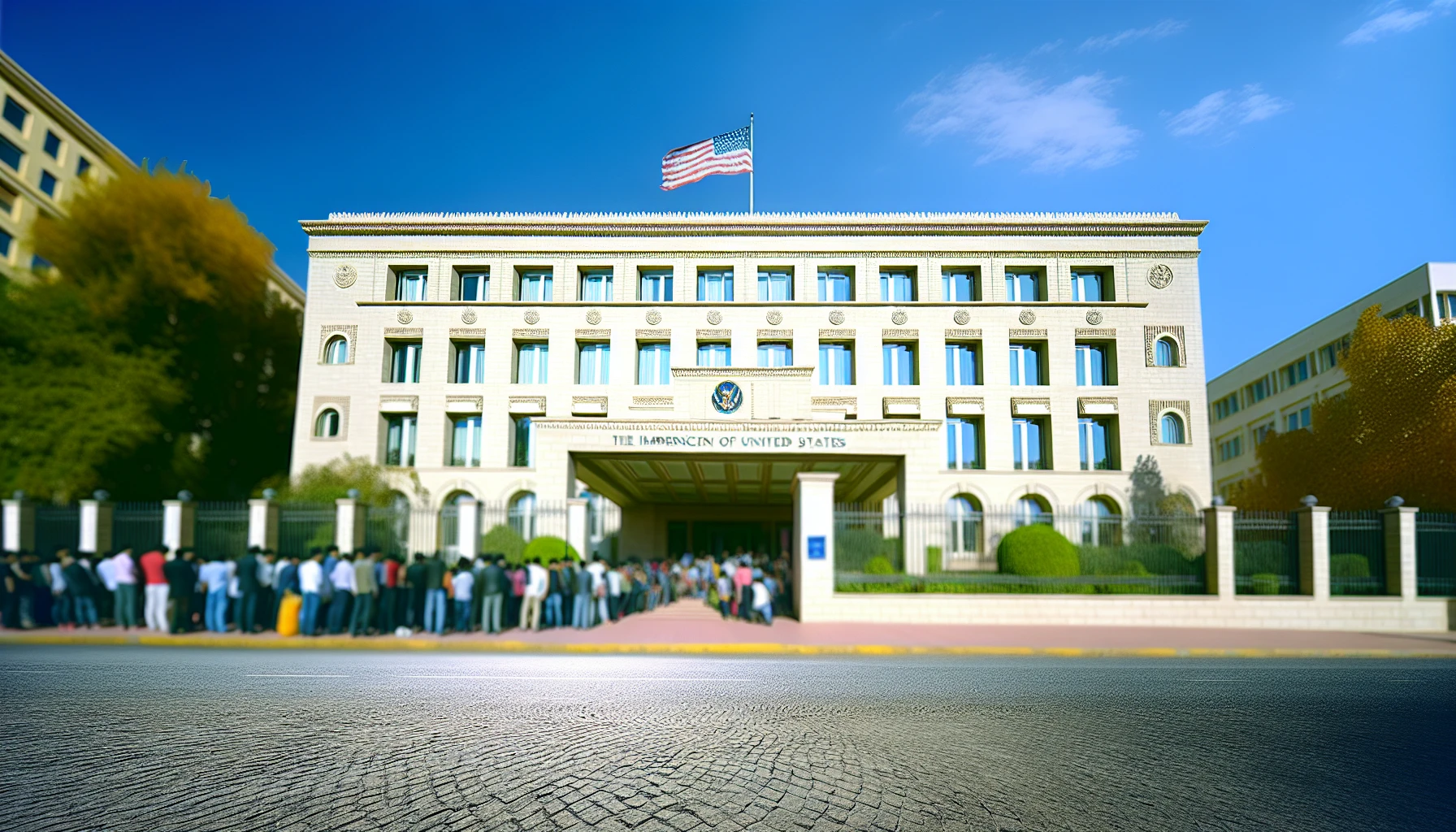
Having ascertained your eligibility for visa renewal, you can now proceed with the actual visa application process. This process is similar to your initial visa application, involving the completion of an application form, payment of the required fee, and scheduling an appointment if necessary.
We will examine the key facets of the US visa renewal process, which include filling out Form DS-160, collecting necessary documents, and arranging an interview if needed.
Completing Form DS-160
Form DS-160 is the application form required for obtaining US visas and US visa renewals. It can be completed through the Consular Electronic Application Center, and it must be filled out exclusively in English, using only English language characters. The confirmation page for Form DS-160 is of paramount importance, as it should be printed and brought to the interview and when submitting documents.
Accuracy is crucial when completing Form DS-160, as any errors or inconsistencies may lead to delays or even denials in the visa renewal process. Ensure that you provide truthful and up-to-date information to increase your chances of a smooth renewal.
Gathering Supporting Documents
During your US visa renewal, it’s important to collect all required supporting documents. These documents may vary depending on your visa type, but some common examples include:
- A valid passport
- Evidence of qualifications or degrees
- Evidence of income or assets
- Travel itinerary
- Birth or marriage certificates
It’s crucial to check the specific requirements for your visa type to guarantee that you have all the required documents for the renewal process. Having all the necessary documents in order will not only expedite the process but also minimize the risk of visa denial.
Scheduling An Interview (if applicable)
In some cases, when renewing a US visa, an interview is required. To schedule an interview, you’ll need to:
- Complete the DS-160 form
- Pay the visa application fee
- Create an account on the U.S. Visa Information Service website
- Schedule the interview appointment through the online system
However, certain applicants may qualify for the Visa Interview Waiver Program, which allows for visa renewals without an in-person interview at the US Embassy.
The interview process can be a critical aspect of the US visa renewal process. Understanding the Visa Interview Waiver Program’s eligibility requirements and application process can help you determine if you need to schedule an interview and how to prepare for it if necessary.
Visa Interview Waiver Program
For some applicants, the Visa Interview Waiver Program offers a more convenient path to renewing their US visa. This program allows certain visa renewals to be processed without an interview, simplifying the renewal process and potentially saving valuable time and resources.
To fully comprehend the benefits of the Visa Interview Waiver Program, let’s explore its eligibility requirements and application process, which can help determine if you qualify for this convenient renewal option.
Eligibility Requirements
Several criteria must be met to qualify for the Visa Interview Waiver Program. Visas of the following categories are eligible for the program:
- B-1/B-2
- C-1/D
- F
- J
- M
- O
Additionally, applicants renewing a visa in the same classification within 48 months of the prior visa’s expiration are eligible for an interview waiver.
Knowing whether you meet the criteria for the Visa Interview Waiver Program can simplify your visa renewal process and potentially save you time and effort. Ensure that you carefully assess your eligibility before proceeding with the renewal process.
Application Process
If you’re eligible for the Visa Interview Waiver Program, the application process becomes more streamlined. Eligible applicants are only required to submit Form DS-160, pay the related filing fees, and await the processing of their application. The processing duration for the Interview Waiver Program is estimated to be four to six weeks from the time the application is received by the Consular Section.
By taking advantage of the Visa Interview Waiver Program, you can navigate the US visa renewal process with increased efficiency and minimal stress, especially if you have a visa prior. With our streamlined visa processing, you can focus on preparing for your visa interview and interview waiver with ease.
Paying The US Visa Renewal Fee

An essential aspect of the US visa renewal process is remitting the appropriate fees. The fees for visa renewal vary depending on the type of visa, and it’s crucial to understand the fee structure to ensure a hassle-free renewal experience.
Let’s explore the different fees associated with US visa renewal and the various payment methods available to submit these fees.
Fee Structure
Different types of visas come with distinct fees for renewal. For example, the renewal fee for a B-1/B-2 tourist visa is $185, while the fee for certain petition-based nonimmigrant categories (H, L, O, P, Q, and R) is currently $205. It’s essential to be aware of the specific fees for your visa type to ensure accurate payment.
In some cases, visa fee waivers may be available for those unable to pay the filing fees, and certain nonimmigrant visa applicants may benefit from interview waiver authorities, which can reduce visa appointment wait times.
Payment Methods
Many payment methods are accepted for the US visa renewal fee, such as:
- Visa
- MasterCard
- American Express
- Discover
You can remit the fees online through the Consular Electronic Application Center, ensuring that your card has sufficient funds to cover the fee.
By understanding the various payment methods available, you’ll be well-equipped to handle the financial aspect of your US visa renewal process without any complications.
US Visa Renewal Processing Time
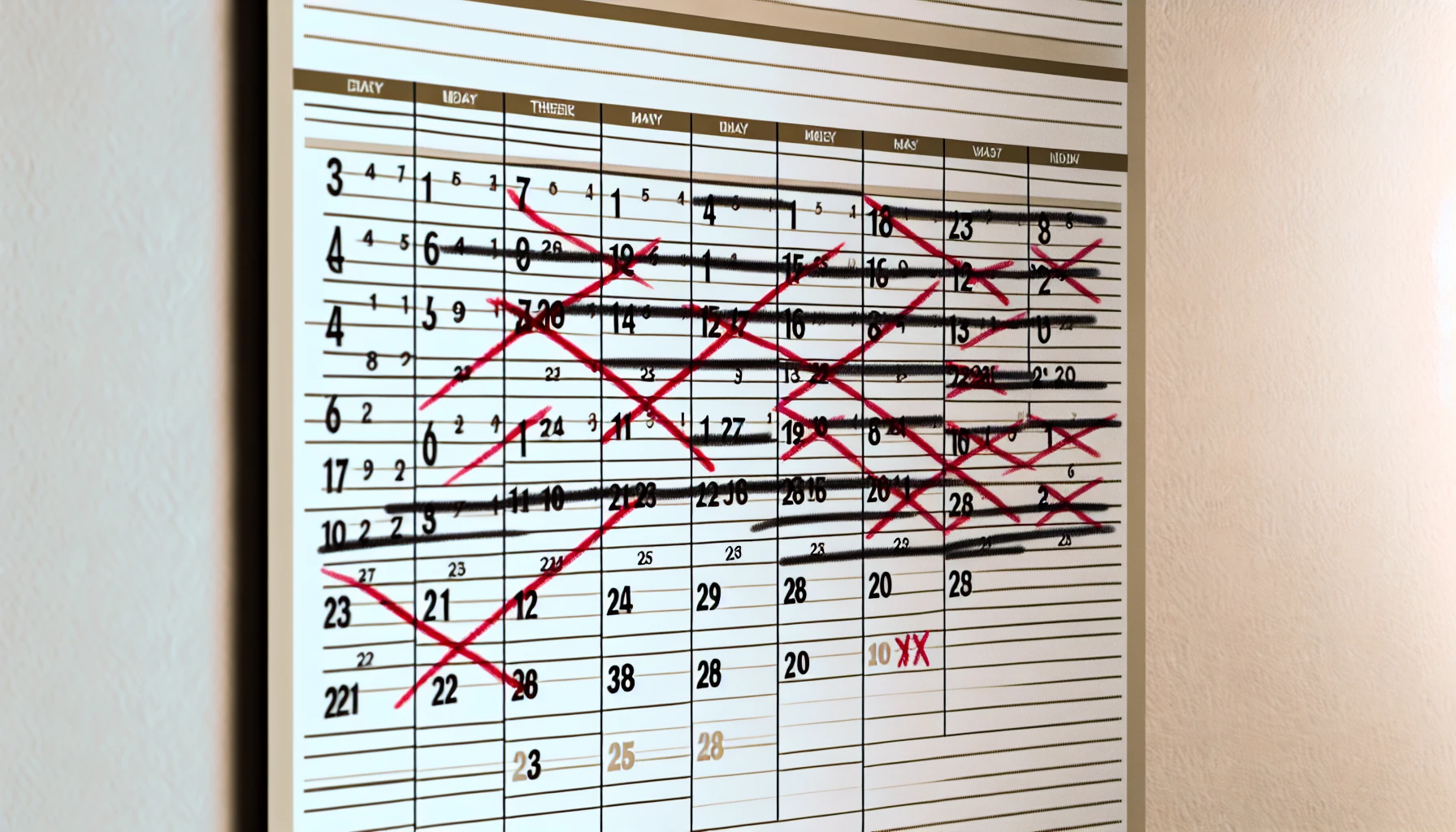
US visa renewal processing times can fluctuate, and recognizing the factors that might influence the process duration is important. Being aware of these factors can help you plan accordingly and minimize any potential disruptions to your travel plans.
We will examine the elements that can influence the processing time of your US visa renewal and learn the procedure to check your application status.
Factors Affecting Processing Time
Several factors can influence the processing time of a US visa renewal. These factors include:
- Pent-up demand
- Regular seasonal demand
- Typical causes for visa denials
- The type of visa
- Time of the year
Different visa types, including multiple entry visa, may have distinct processing times due to differing requirements, eligibility criteria, and workload.
Furthermore, backlogs at the consulate or embassy can cause extended wait times and delays in the processing of visa renewal applications. Being aware of these factors can help you better anticipate the processing time for your visa renewal and make necessary adjustments to your plans.
Checking Application Status
To check the status of your US visa renewal application, you’ll need your passport number, your immigrant or nonimmigrant visa application type, and your receipt number (if applicable). You can use the U.S. Department of State’s Visa Status Check portal or the Consular Electronic Application Center (CEAC) website to review your visa application status online.
Additionally, you may inquire about the status of your US visa renewal application via phone by contacting the USCIS National Customer Service Center, which is part of the Citizenship and Immigration Services. Keeping track of your application status will provide you with valuable insight into the progress of your visa renewal and allow you to be prepared for any potential disruptions.
What To Expect After Visa Renewal Approval
Upon approval of your US visa renewal, you will receive your renewed visa, which permits continued travel to the United States. The validity period of a renewed US visa can vary from 1 month to 10 years, depending on the type of visa. In some cases, there may be conditions attached to a renewed US visa, such as having a valid passport for at least six months prior to the intended departure date.
Upon receiving your renewed visa, you can utilize it immediately for travel, ensuring a seamless continuation of your journey in the United States.
Handling US Visa Renewal Denials
In case of a US visa renewal denial, comprehending the reasons for the denial and potential subsequent steps is important. Common causes of visa renewal denials include incomplete or inaccurate information on the application form and inadequate supporting documentation.
If your visa renewal is denied, you can take several steps to address the issue, including:
- Reviewing the denial letter
- Understanding the reason for denial
- Obtaining legal advice
- Reapplying or appealing
- Supplying additional information
By taking appropriate action, you can potentially overcome the denial and successfully renew your US visa.
Summary
Navigating the US visa renewal process can be a daunting task, but with the right knowledge and understanding of the process, you can ensure a smooth experience. This comprehensive guide has covered everything from eligibility criteria and the renewal process to handling denials and understanding processing times.
By following the steps and insights outlined in this guide, you’ll be well-equipped to successfully renew your US visa, allowing you to continue your journey in the United States with confidence and peace of mind.
Frequently Asked Questions
Do I have to renew my U.S. visa before it expires?
You need to renew your U.S. visa before it expires, as the expiry date stamped on the visa is different from that on your passport. It is recommended you apply for a new visa well in advance of your current visa’s expiration date.
How do I renew my U.S. visa online?
To renew your U.S. visa online, you must complete Form DS-160 (Online Nonimmigrant Visa Application) and upload a digital visa photo, pay the filing fees, then schedule and attend an interview at a U.S. Embassy or consulate.
Can I renew my U.S. visa without interview?
You may be eligible to renew your U.S. visa without an interview through the Interview Waiver Program (IWP), depending on your individual eligibility. This program allows certain types of visa holders, including some B visa holders, to renew their visa without attending an additional visa interview.
What types of visas are eligible for renewal?
Visitor visas (B1/B2) and diplomatic visas are eligible for renewal.
How can I check the status of my US visa renewal application?
To check the status of your visa renewal application, you can utilize the U.S. Department of State’s Visa Status Check portal or the Consular Electronic Application Center (CEAC) website.
Related Blog
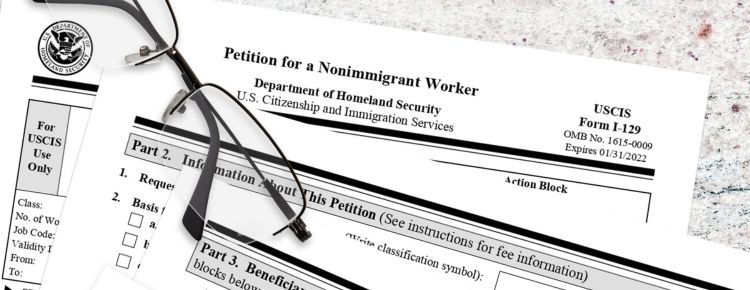
Navigating The I-129 Petition Process For Nonimmigrant Workers
If you’re puzzling over Form I-129 for hiring nonimmigrant workers in the U.S., look no further. This article demystifies the filing process, requirements, and fees, equipping employers with the knowledge to proceed confidently. Discover the specifics of completing the form, the essential documents you’ll need, and how to avoid common errors, ensuring your petition stands […]
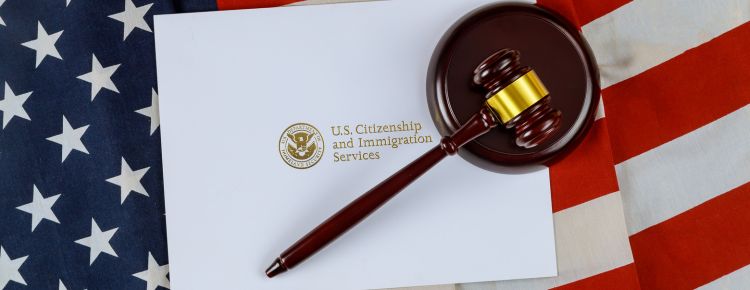
What Happens If Indian Parents Overstay in the U.S.? 180-Day Rule, 3-Year & 10-Year Bars Explained
Overstays happen more often than families admit — sometimes because the I-94 date is misunderstood, sometimes because a medical issue or family emergency made travel difficult. For Indian parents visiting the U.S. on a B-2 visa, an overstay can create long-term consequences if it is handled poorly. This guide explains, in plain English, what “overstay” […]
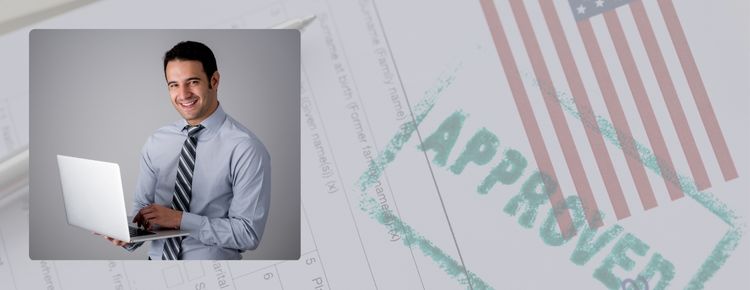
Navigating The I-129F Process For Your K-1 Visa Journey
Starting the K-1 visa application for your foreign fiancé(e) begins with the I-129F form. This guide provides straightforward steps to complete your I-129F accurately, avoiding errors that could delay your reunion. Get ready to learn the essentials for a seamless K-1 application journey. Key Takeaways Understanding Form I-129F And Its Purpose The I-129F form – […]


